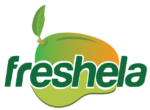
Bosnia and Herzegovina heavily imports avocado because of its unfavorable continental climate. It experiences cold, snowy winters and warm summers. The average rainfall is about 900mm per year and the temperatures can be as low as 2°C and as high as 20°C.
Majority of avocados sold in Bosnia and Herzegovina are in supermarkets or hypermarkets. The biggest number of consumers in the country is found in the cities of Sarajevo, Banja Luka and Zenica. Smaller retail outlets, wholesale markets and street vendors around Bosnia and Herzegovina also trade in smaller quantities of avocados.
Bosnia and Herzegovina Avocado Imports
Imports of avocado in Bosnia and Herzegovina were valued at nearly 700,000 US Dollars in 2023. Compared to the previous year, it is an increase of 44%. The sharpest climb was from 2022 to 2023when the import value rose from about 483,000 US Dollars to around 700,000 US Dollars.
Here are the total values in import of avocados in Bosnia and Herzegovina between 2012 and 2023.

Avocado Price in Bosnia and Herzegovina per kg
The cost of a kilo of avocados in Bosnia and Herzegovina can be between 5 BAM (US2.66 dollars) and 6 BAM (US3.19 dollars). This is based on the average import price per kg. This wholesale price has gone as low as 4.85 BAM (US2.58 dollars) in the recent past.
Just like any fruit, retail prices of one avocado vary depending on the seller. Bosnians can buy imported avocados for most of the year because they are sourced from several nations in different hemispheres. Market timing also determines the price range as late season avocados get a premium over early season avocados.
Avocado consumers in Bosnia and Herzegovina can also find either good discounts or higher prices depending on the time of shopping. As a seasonal fruit, avocado prices are adjusted based on supply. Bosnia and Herzegovina imports a bulk of avocado during its summer months from June up to September. It brings in small amounts of avocado the rest of the year from countries whose season comes later.
Avocado in Bosnia and Herzegovina
Bosnia and Herzegovina is slowly changing into a high-value avocado market. The country takes in commercial varieties such as Hass and Fuerte. But it also brings in non-commercial green skin varieties. Many avocado consumers in Bosnia and Herzegovina prefer green skin types of avocado because of their lower cost.
The logistical costs that come with importing avocados are a major factor in setting their retail prices. The type, quality and size of avocado is the other factor behind its selling price. The dark skin Hass avocado is gaining in market share little by little even if it costs more. Avocados exported to Bosnia and Herzegovina are packed in both 4kg and 10kg cartons.
Avocado imports have to first go through the Indirect Taxation Authority of Bosnia and Herzegovina. They are then tested using certain food safety protocols set by the Food Safety Agency (FSA). The government of Bosnia and Herzegovina sets the requirements for importers of horticultural produce like avocado through the Ministry of Agriculture, Forestry and Water Management.
Cartons of avocado must be labeled according to guidelines determined by the Ministry of Foreign Trade and Economic Relations. Bilingual language, which includes Bosnian, is required on the label. Labels must include the following information:
- Name and address of producer
- Brand or trademark
- Country of origin
- Type of avocado and grade
- Storage instructions and temperature requirements
- Gross weight and number of avocados per carton
- Shelf life
- Harvest year and packing date
Avocados imported in Bosnia and Herzegovina must undergo the pesticide maximum residue level (MRL) tests done by government laboratories. They should not exceed acceptable limits according to Codex. FSA is responsible for the control of pesticides residue on avocado imports

